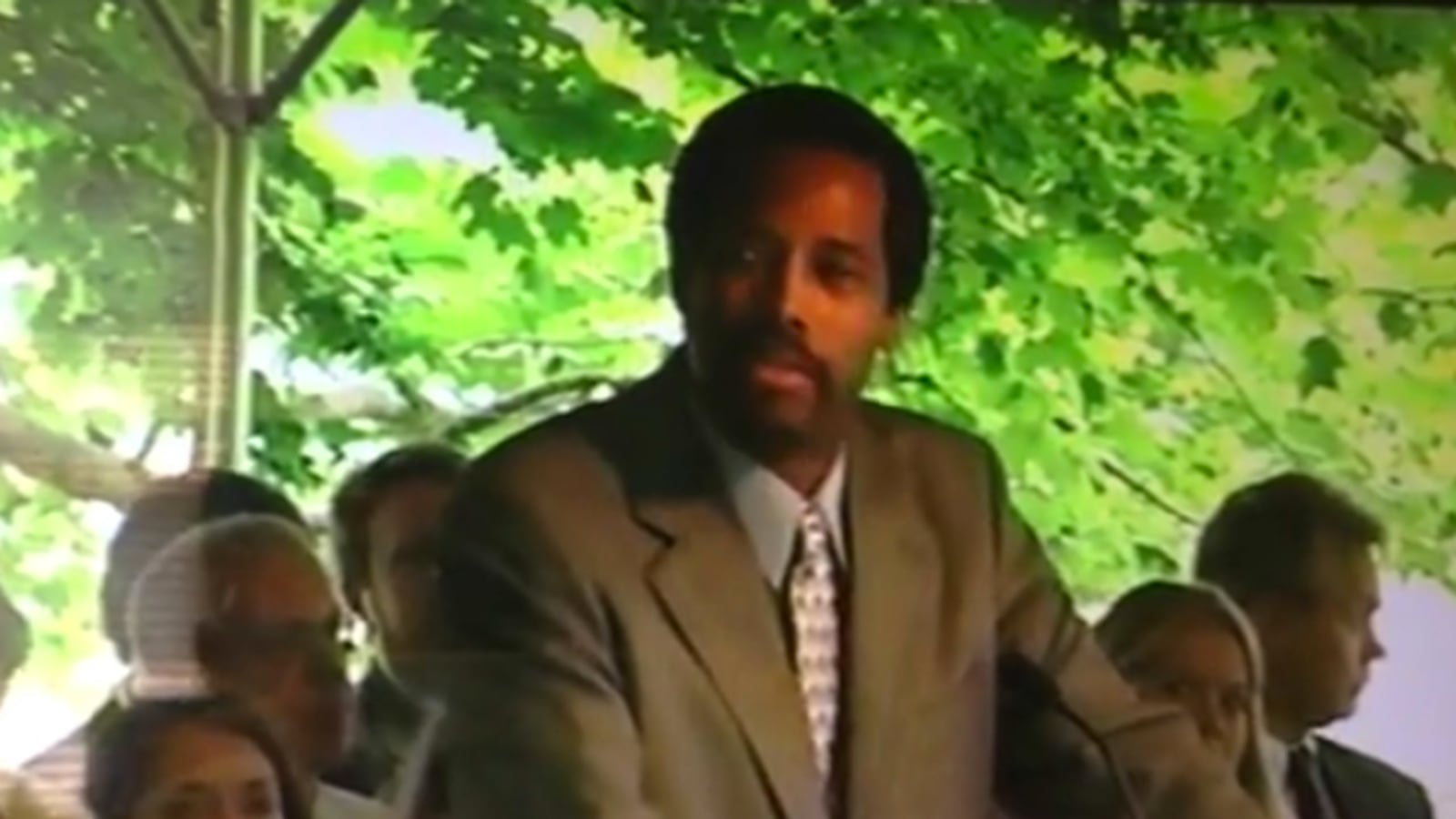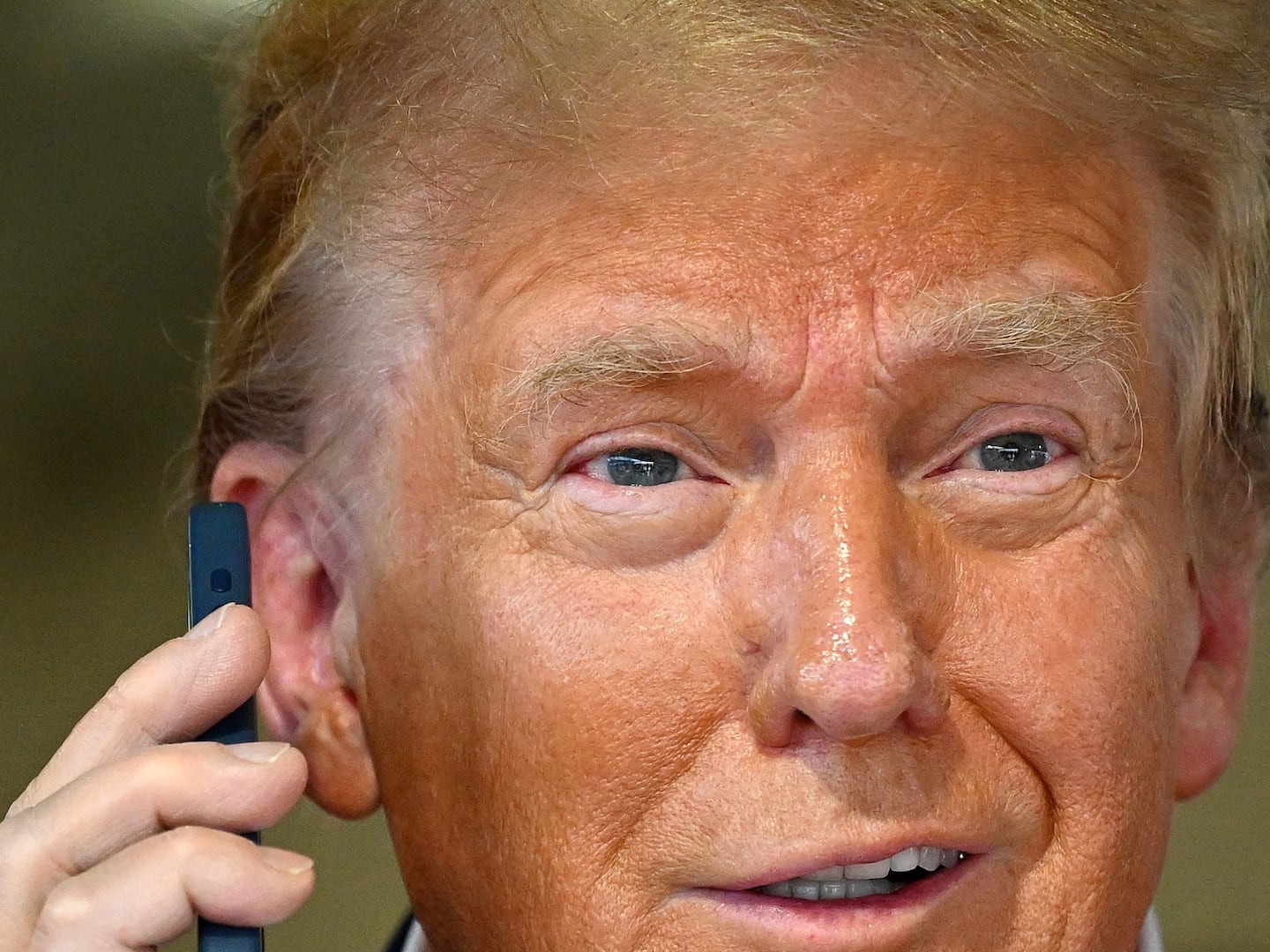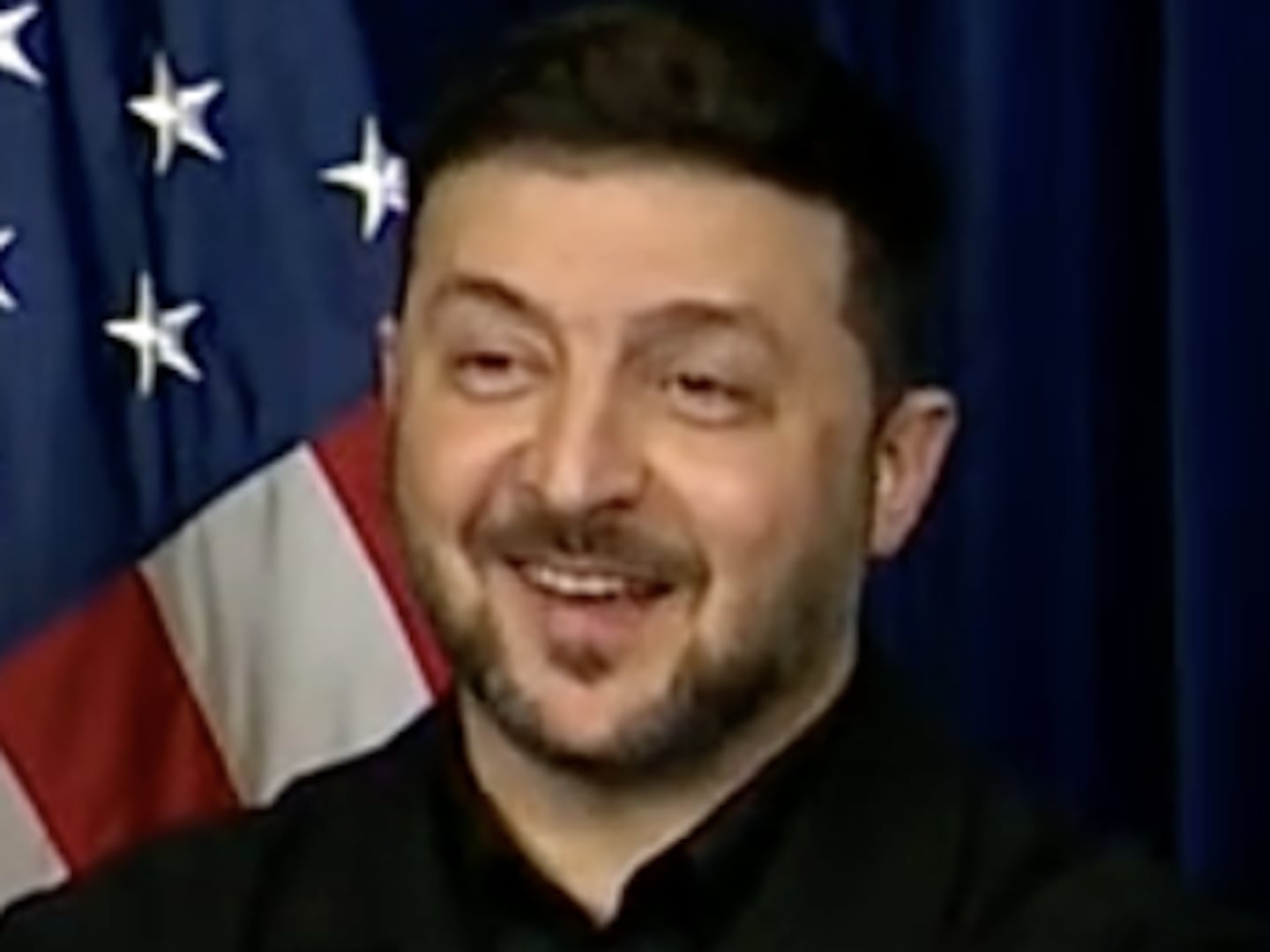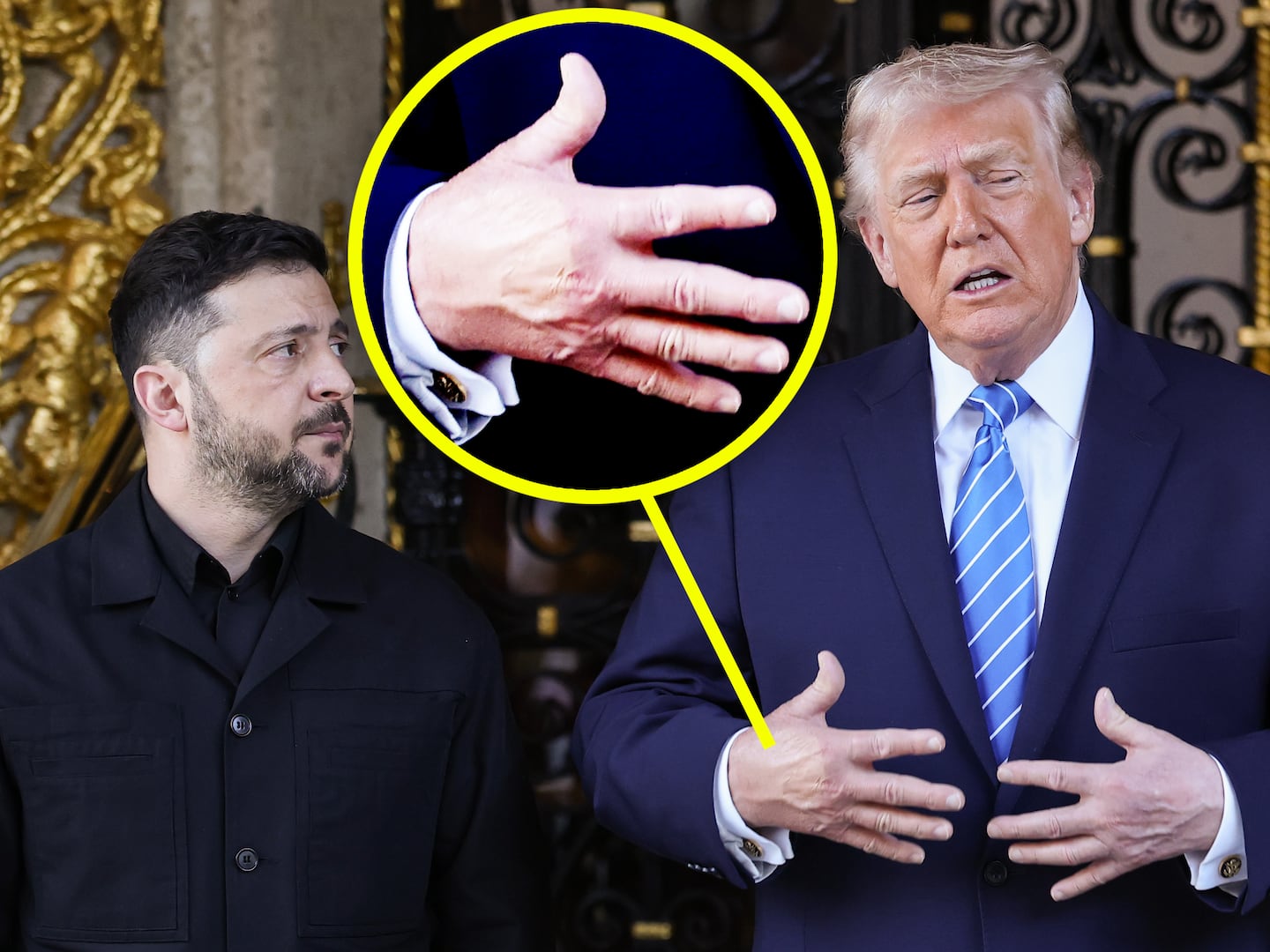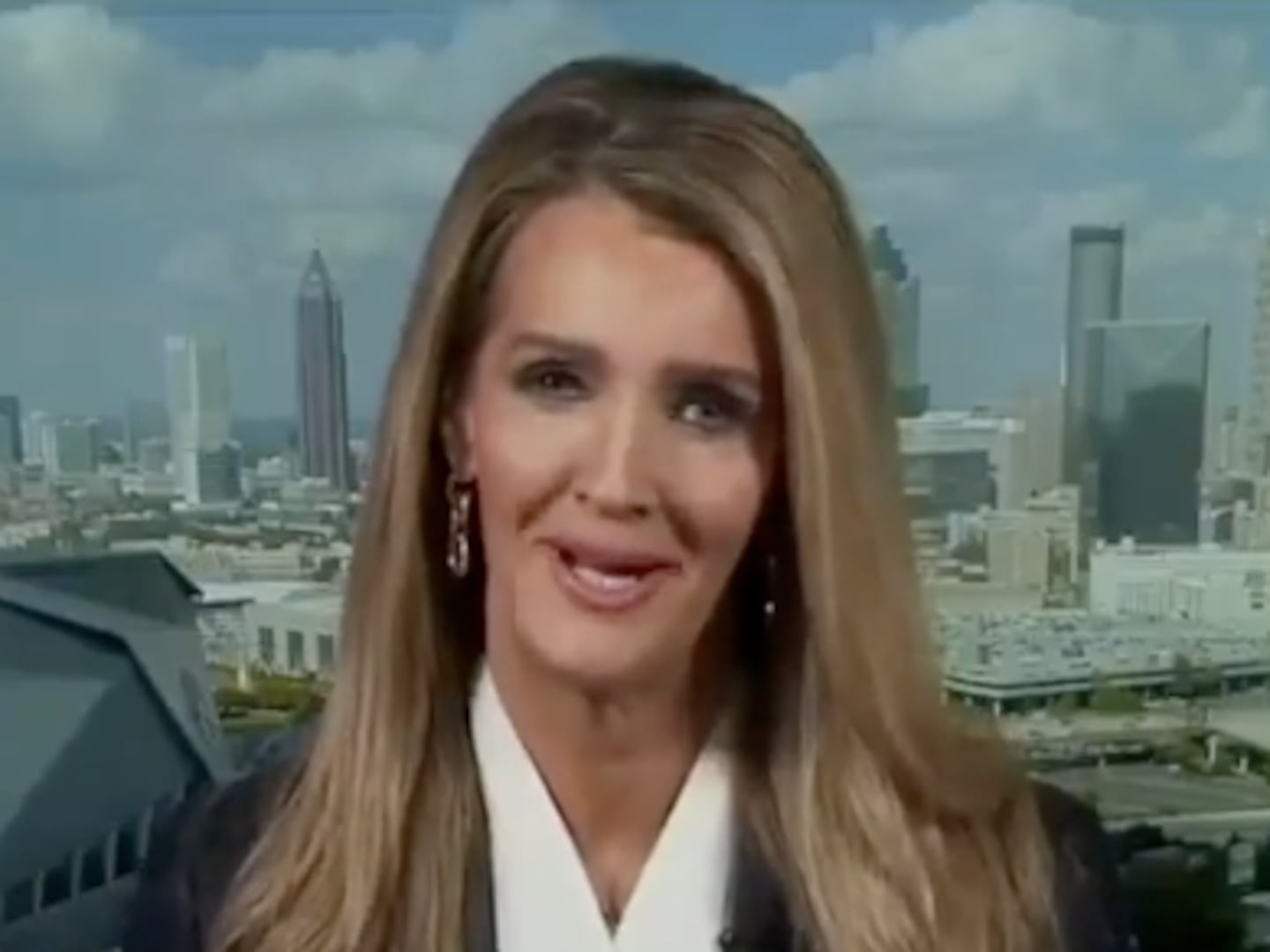Ben Carson spoke at my high school graduation and made a lasting impression—though probably not in the way he intended.
Growing up in the Baltimore area, Carson made recurring appearances in my education. In fifth grade, I received a copy of Carson’s book, Think Big, for getting the high score on a test in reading class. A few years later, we took a field trip to see a play about Carson’s life. If my memory is correct, it was a play-in-the-round, and I spent the whole time awkwardly gazing across the circle at the girl I had a crush on. But the main connection was that I was in the same graduating class as one of Carson’s sons, a quiet kid who I sat a couple seats away from in biology but didn’t know very well.
At my school, it was routine for the distinguished parent of a graduate to speak. So when Carson, a renowned neurosurgeon, was chosen to address the class of 2003, it wasn’t a surprise.
What was a surprise was his politically loaded speech, which seemed more like the ramblings of the Fox News pundit he would become than the wisdom of an admired physician.
It started about six minutes in, almost randomly, as Carson was riffing on why he decided to specialize in pediatrics—the main advantage being that kids live longer than “old geezers” after successful surgery.
“I do not believe in political correctness, by the way, OK?” Carson said. “There’s almost never a time when I give a speech where somebody isn’t offended. I remember one time I was talking about human brains versus dog brains, and a guy came up and said, ‘You can’t talk about dogs like that,’ you know, ‘It’s very offensive.’ And then, you know, I said something about how the fashion industry makes young women think they’re supposed to be so skinny it looks like they escaped from Auschwitz, and a young Jewish woman came up to me and said, ‘You can’t talk about Auschwitz.’”
“The fact of the matter is, I don’t mean to offend anybody,” he added. “And if anybody’s offended—too bad.”
That line got a lot of laughs, but Carson was just getting warmed up. Next, he sermonized on the moral failures that caused other “pinnacle nations” throughout history to fall. The point was ostensibly that we, the graduates, could prevent America from suffering the same fate.
“One of the things that was most troubling about ancient Rome and Greece was they began to philosophize about everything. There was no right or wrong. They could philosophize everything away. Principles began to fade. Everything was OK. It just depends on how you look at it,” he said. “Now I’m not saying that we all need to be on our pedestals judging everybody. Because I do believe that we need to be very compassionate. But there’s a difference between being compassionate and being without values, and that is a severe problem today. We call it political correctness. In those days, they called it philosophy. We need to guard against it.”
At this point, I thought: He’s talking about gay people. My friends said I was crazy. However, Carson’s remarks since then suggest that I was dead on. In March, at the Conservative Political Action Conference, Carson said, “As you know, I am not a fan of political correctness. I hate political correctness. I will continue to defy the PC police, who have tried in many cases to shut me up. You know, I actually find them pretty amusing. I mean, I still believe that marriage is between a man and a woman.”
Carson finished by encouraging us to “think big,” which is both the title of one of his books and an acronym summing up his prescription for how to live. “The last letter G is for God. We live in a nation where they are trying to extract God. What a mistake,” he said.
“The fact of the matter is anybody who says stuff like we can’t talk about what we believe in, and we can’t talk about our belief in God, do they realize that our founding document, the Declaration of Independence, talks about certain inalienable rights that our creator”—he pronounced this kree-AY-tore—“aka God endowed us with, that the Pledge of Allegiance to our flag says we are one nation under God, most courtrooms in the land on the wall it says ‘In God We Trust,’ every coin in our pocket, every bill in our wallet it says ‘In God We Trust.’ So if it’s in our founding documents, it’s in our pledge, it’s in our courts, it’s on our money, but we’re not supposed to talk about it, what in the world is that? In medicine, it’s called schizophrenia. Doesn’t that explain a lot of what goes on in our nation today?”
Eleven years later, Carson is a conservative hero, better known for his fiery political rhetoric than his “gifted hands.” He’s a paid contributor to Fox News who is publicly eyeing the 2016 presidential race with encouragement from the “National Draft Ben Carson For President Committee.” And he’s still railing against “political correctness”—only now, more than a decade after I graduated from high school, it is perfectly clear what he means.

